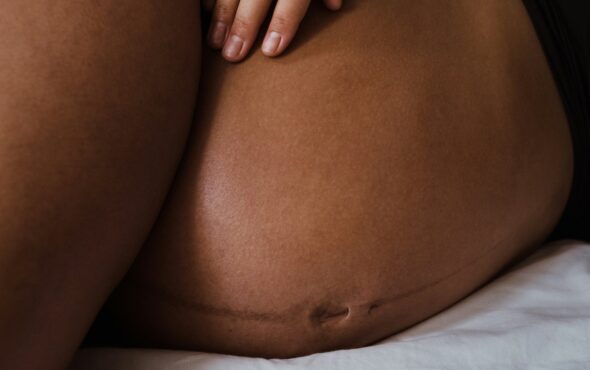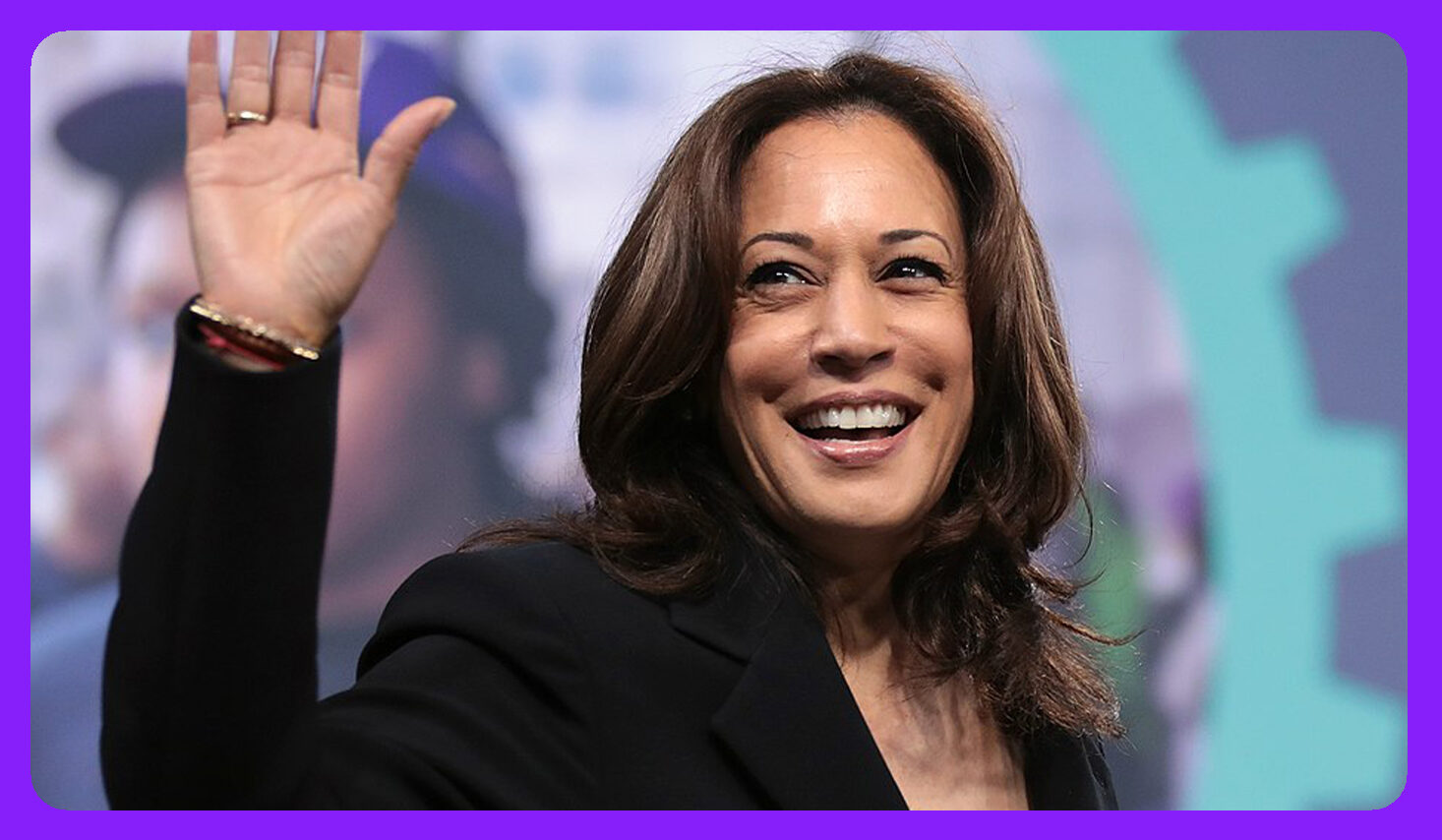
On 5 November, the American public elected Donald Trump as the 47th US President. While 50.5% of Americans voted Trump in, queer women of colour overwhelmingly favoured Kamala Harris. A national exit poll of almost 23,000 people found that 86% of LGBTQIA+ voters backed Harris.
Among Black women, Harris was even more popular, capturing 91% of the vote and making the them the highest reported demographic to vote for her. Latina women voted 60% for Harris and Asian women voted 54% for Harris.
Many LGBTQIA+ women of colour were ready to see themselves represented in the White House. But perhaps more importantly, they were hoping the next president wouldn’t be Trump, who nominated conservative justices to the Supreme Court that overturned Roe v. Wade. In addition, at least 26 women have accused Trump of sexual misconduct and rape dating back to the 1970s, and he has been found liable in court for sexual abuse.
Since Trump’s Tuesday victory, women have reported a rise in online misogyny, pointing to examples of far-right figures who have made statements about women’s bodies.
This includes Nick Fuentes, who dined with Trump at Mar-a-Lago in 2022, and wrote on X on election day, “Your body, my choice. Forever.” The post has been liked more than 47,000 times.
Trump has also vowed to crackdown on what he calls “transgender insanity” and has been intrinsically linked to Project 2025, the 920-page document that suggests the US returns to the traditional definition of marriage and strip terms like sexual orientation and gender identity from “every federal rule, agency regulation, contract, grant, regulation, and piece of legislation that exists.”
Uncloseted Media spoke with six LGBTQIA+ women of colour from different pockets of the US to get their immediate reactions to the election results and to learn about their hopes, fears and disappointments as they reflect on America – a country where a man has held the seat of president for 248 years since the nation was founded in 1776.
Mary Midgett, 88, San Francisco
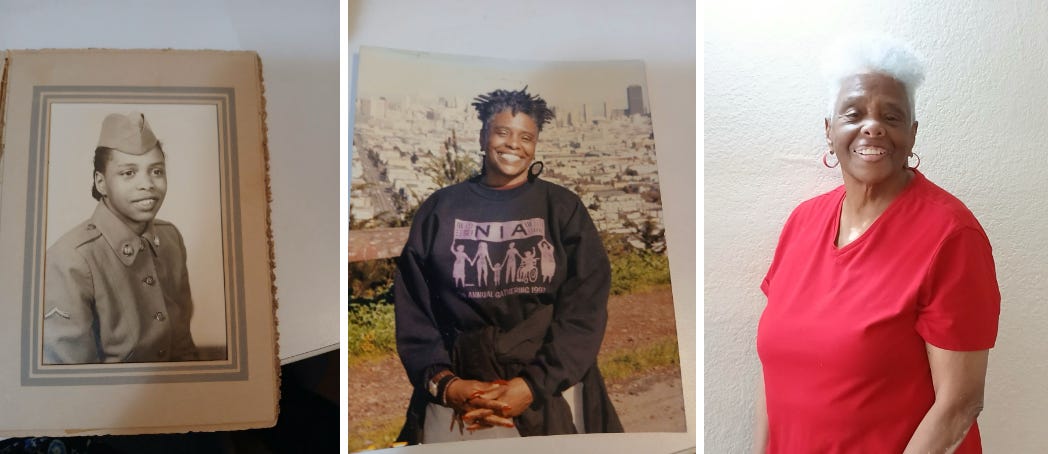
When 88-year-old Mary Midgett, a Black lesbian in San Francisco, is asked whether America is ready for a woman of colour as president, her answer is simple. “Hell no, they weren’t ready for a white woman,” Midgett told Uncloseted Media.
“If they’re not going to let [Clinton] in, you know damn well they’re not going to let Kamala in. We have to look at history, honey.”
Midgett was born in 1936, and has faced racism throughout her life. “I remember one incident when I lived in New York City, and I went to apply for a job at an employment agency. The guy told me, ‘We don’t hire n***ers.’” She remembers being asked to eat at a separate table for people of colour in Alabama when she was serving in the army in 1956.
Before the last of the Jim Crow laws were overturned in 1965, Midgett remembers being told she must try on clothes in a different section of a department store that was reserved for “coloured people.”
“I’m sad because there’s a felon in office,” says Midgett, who is part of the 91% of Black women who voted for Harris.
“A whole lot of youngsters [of colour] are thrown in jail because they’re felons, but there’s this white politician, he’s a felon and he’s going to run the country.”
“I’m 88 years old. I’m not nervous about him,” says Midgett, who proudly teaches pre-school to kids at a local YMCA and loves watching PBS. “The man is going to do what he’s going to do. He’s going to take away everything that he’s going to take away. He’ll have another January 6th if he wants to.”
Midgett recognises that many queer people of colouur in younger generations are afraid because of Trump’s aggressive rhetoric towards trans and immigrant communities. Despite this, “They’re going to have to stick together to take a risk because it is going to be a risk,” she says.
“Blacks, whites, lesbians, trans [people]. How do they all get their needs met? Coming together. Marching together. Thinking together.”
Dorothy Ha, 18, New Haven, Connecticut
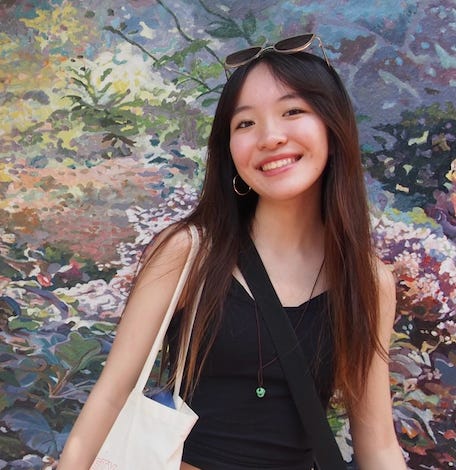
18-year-old Dorothy Ha, a Chinese American lesbian in her freshman year at Yale University, is part of the next generation Midgett references. She told Uncloseted Media she’s feeling “despondent” after the election results.
“Politics is truly so personal to me,” says Ha, who’s majoring in art history. “They are inseparable from emotion and identity and being a woman of color, being the daughter of immigrants.”
Ha remembers in 2016 – when she was 10 years old – when a leaked tape revealed Trump bragging about grabbing women’s genitals.
One month later, Americans elected him as their president. “I remember staying up with my parents, watching it when I was 10. And it literally just feels so insane that I’m 18 now. I voted for the first time and he’s won again.”
In addition to Trump’s anti-LGBTQIA+ rhetoric and policies, Ha’s Chinese identity makes the election results especially hard. In 2020, at the beginning of the pandemic, Trump falsely labeled COVID-19 as “the Chinese Virus” and a 2021 study from the American Journal of Public Health found that Trump’s inflammatory rhetoric around COVID-19 helped spark anti-Asian Twitter content and “likely perpetuated racist attitudes.”
“Today, I have just been thinking a lot about an incident that happened to my family in 2020, when [someone] threw a rock through our window that had the word ch*nk written on it,” she says.
“My vision for my future feels insecure,” says Ha. “Part of my American dream as a queer woman involves growing up being able to get married. Part of my dream is being able to have children, whether that be through adoption or other methods. A lot of that was at stake this election,” she says, referencing Project 2025’s suggestions of returning to an ideology of the nuclear family.
“I have been thinking a lot today about my future and how feasible it will be to fully realise it in the way I want. I think that’s profoundly, profoundly sad,” she says. “And now that Trump has ultimately won, I feel that my personal American dream, and the dream of many, many other people of colour and queer folks is being directly targeted.”
Despite this, Ha says she’s ready to take the baton from Midgett and represent the next generation.
“I know that I’m not going to stand by. I don’t think anyone should be standing by right now.”
Ciora Thomas, 35, Pittsburgh
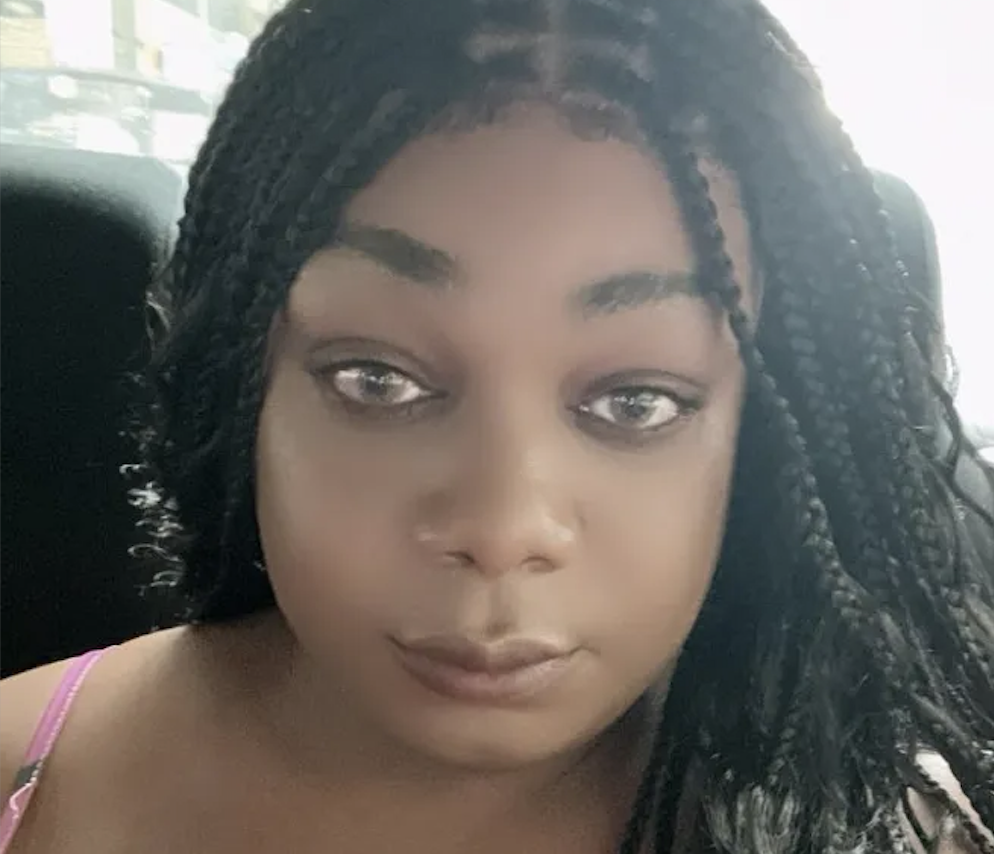
About 500 miles away from Ha, Ciora Thomas remembers falling asleep on Tuesday night before the election results had come in. “I woke up and I grabbed my remote and my anxiety was off the charts,” she told Uncloseted Media. “The first thing I saw was [that] Trump was elected president.
I got my cries out, and that was important for me to [be able to] make better informed decisions about where we need to go, because when we move on emotion it just doesn’t always work.”
Thomas, who founded SisTers PGH, a Black and trans-led nonprofit that helps trans people find housing and other resources, says now that Trump is president-elect her immediate goals involve ensuring trans-Pennsylvanians can continue to get the healthcare and support they need.
Thomas, who was one of the 97% of Black women (compared to 47% of white women) in Pennsylvania who voted for Harris, has concerns when it comes to the trans community and their access to healthcare. Trump has said he would block doctors who provide gender-affirming care from Medicare and Medicaid, forbid federal agencies from promoting “the concept of sex and gender transition at any age,” and task the Justice Department with investigating the medical industry to see if they “deliberately covered up horrific long-term side effects of sex transitions in order to get rich.”
Thomas is particularly worried about the mental health of queer youth. “Trans folks are feeling suicidal in this moment,” she says.
“I’ve had a few texts and conversations with trans young folks just this morning stating that they don’t believe they should live here and by live here, they mean being alive.”
June Raven Romero, 27, New York City
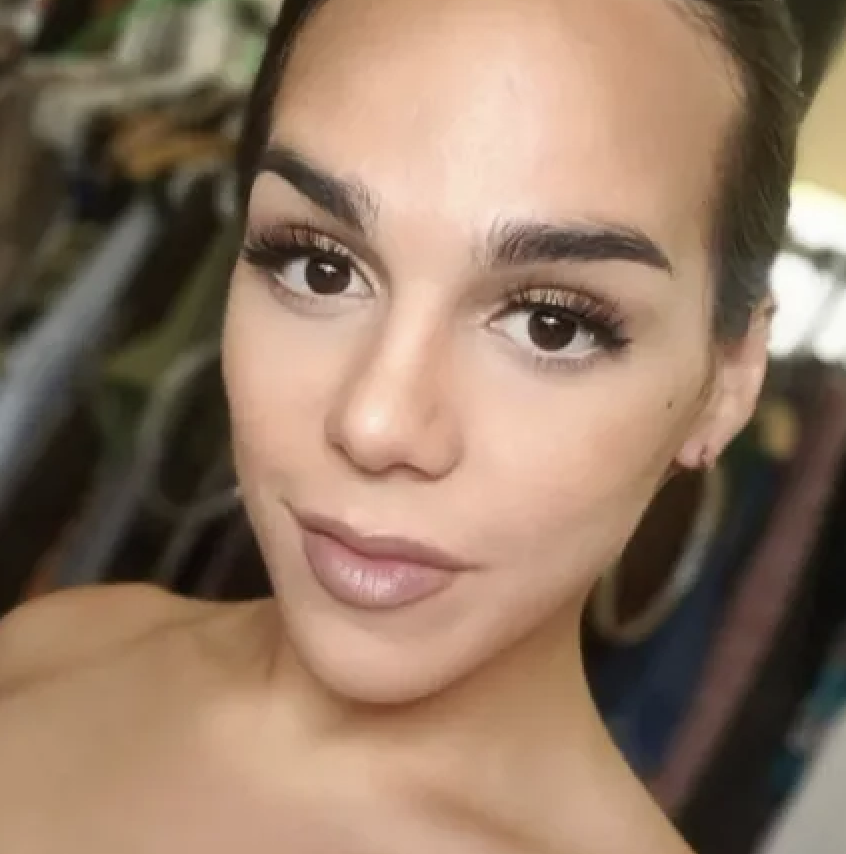
June Raven Romero, a trans Latina woman who recently moved to New York City from Miami, worries that the mental health of queer kids may go from bad to worse.
In the US, 41% of LGBTQ youth seriously considered suicide in the last year, and since the election, the Rainbow Youth Project has reported a fivefold increase in the number of calls to their hotline.
The Trevor Project, a leading LGBTQ youth suicide prevention organisation, has reported a 700% increase in calls, texts and chat messages this week compared to prior weeks.
Romero moved to New York City so she could access better trans-related healthcare. She now brings trans kids and their parents to the city from Florida – where it is harder for minors to access gender-affirming healthcare.
She believes Trump’s attack on the trans community was a key reason he won. “I think it can be said about any super minority in history. It’s not unlike Jewish people historically, not unlike Black folks,” she told Uncloseted Media. “You choose a minority of people that are misunderstood and largely unknown, [where there is] a lot of fascination and phobia. This accumulates and you can just pin the blame on them. So it’s not a surprise to me. It’s just really unsettling and it’s terrifying,” she says, pointing to the $65 million Republican candidates spent on anti-trans attack ads this election cycle.
While Romero acknowledges frustration around Harris’ indecision on issues such as the crisis in the Middle East, she says the record-breaking 46% of Latinos who voted for the 2024 Republican candidate “made the wrong decision.”
“I can understand the ways that they’ve arrived to this decision, but it’s the wrong one. It falls on each one of us and our singular responsibility that we’ve been neglecting for decades, likely hundreds of years now as Americans, which is the responsibility to be educated and civically engaged enough to not allow these kinds of things to happen.”
Natalie Farrior, 29, Durham, North Carolina
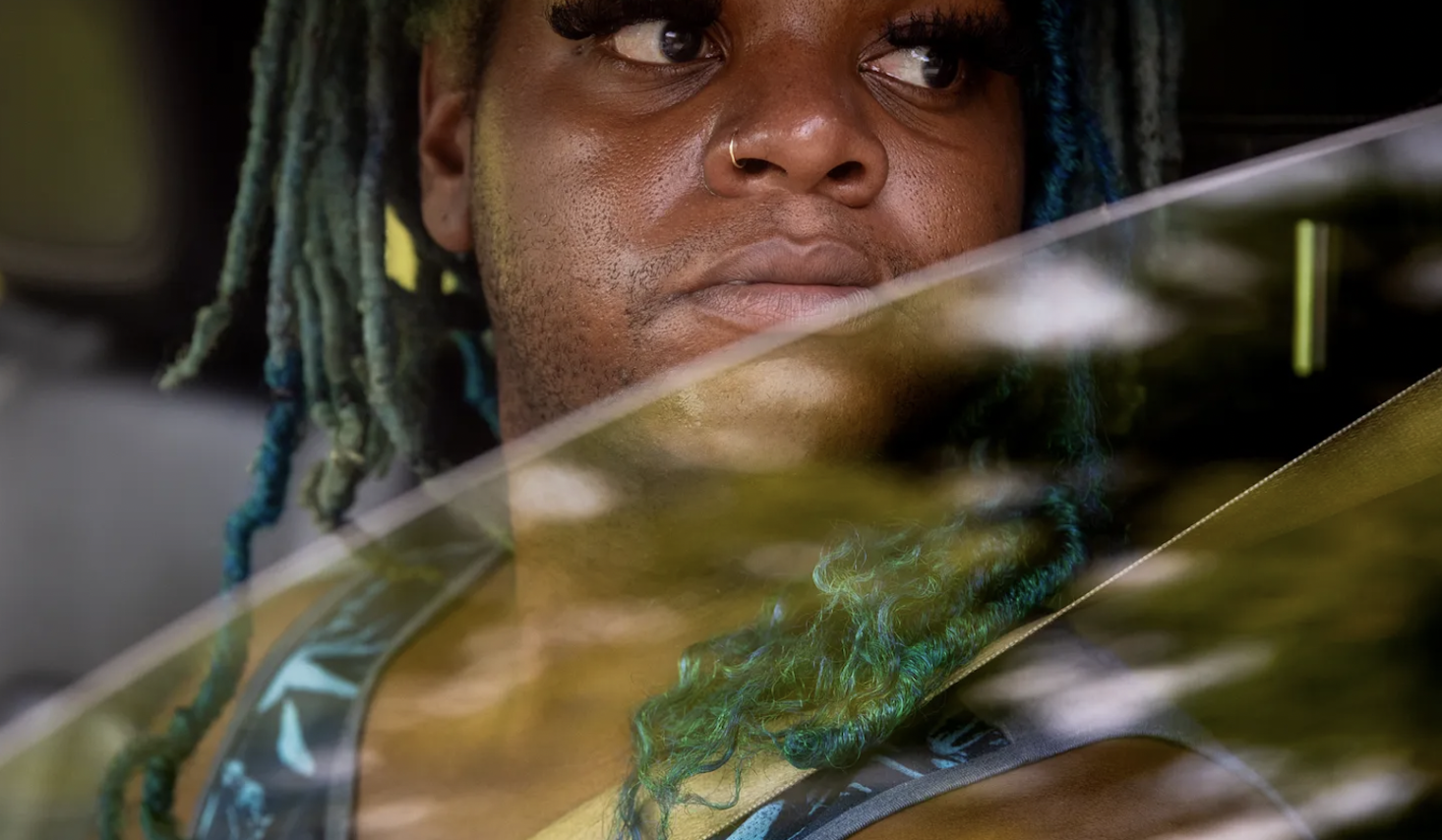
Natalie Farrior, an HIV-positive Black trans woman who works at a warehouse in Durham, North Carolina, is racing to get her name changed on her state ID and passport because she’s worried Trump could pass a federal ban on her ability to do so.
“I’m scared, especially as a trans woman of color,” says Farrior.
She remembers Trump defending white supremacists in a violent rally in her neighboring state in Charlottesville, Virginia, that left one person dead and more than 35 injured. There were “some very fine people on both sides,” said Trump.
Now that Trump is elected, she’s “rushing to get a gun” to feel safe.
She says her queer friend who was dressed in gender-non-conforming clothes and a Harris hat was followed the night of the election by a car that sported a Make America Great Again flag. She also pointed to dozens of Black people who reported being targeted with text messages this week with references to “slave catchers” and that said they’d been selected to pick cotton at the nearest plantation. It is unclear who’s behind the texts.
Farrior, who is nervous about continuing to access her HIV-related medications after House Republicans proposed steep cuts earlier this year, says she is not only scared, but “hurt” by the results. “That we as a nation decided not to chase that progressive step and make history and change the course. It’s a sexist thing because it’s something that a lot of men cannot see: a woman in power. So that aided in everything. The fact that she’s a Black woman aided it further,” she says, noting that 60% of white men voted for Trump.
Debra Palmer, 65, San Francisco
“I am proud to be an American, but I am not proud of America right now,” 65-year-old Debra Palmer told Uncloseted Media.
“It’s just disappointing that this is where we are after all these decades of fighting for equal rights.”
Palmer remembers when she was four years old and her mother participated in the 1963 March on Washington, the largest gathering for civil rights of its time, where Martin Luther King Jr. famously delivered his “I Have a Dream” speech in which he called for an end to racism and racial segregation.
“I think this is probably one of the biggest moments of disappointment for me throughout my 65 years,” she says. “It just feels like we take two steps forward and one and a half steps back.”
“This was an opportunity, and the opportunity is lost.”
Palmer, born in 1959, says this was the most hopeful she has ever felt about a woman becoming president.
“Looking at the divisive campaign that was run by the Republicans versus the Democrats, which was so joyful and enthusiastic, it just seemed there was light and there was dark,” she says. “The majority of the country chose darkness.”
Women have held the highest leadership positions in 62 countries since 1960.
Today, 29 countries are led by women, including Denmark, Greece, Barbados, Uganda and Mexico, which elected its first female president earlier this year
“I don’t know if this country will ever be ready for a female president, which is hard for me to say,” says Palmer. “I truly believe that this election was about gender and race and not the economy.”
Despite Palmer’s intense disappointment, she encourages young women and LGBTQIA+ people to remain hopeful and engaged.
“I’ve got, what, maybe 15, 20 more years on this earth?” she says. “These kids that are in their 20s, in their 30s, they’re going to have to live for the next 60 years. We have to continue to march.
We can’t just sit on our butts and do nothing. We have to make our voices heard.”
